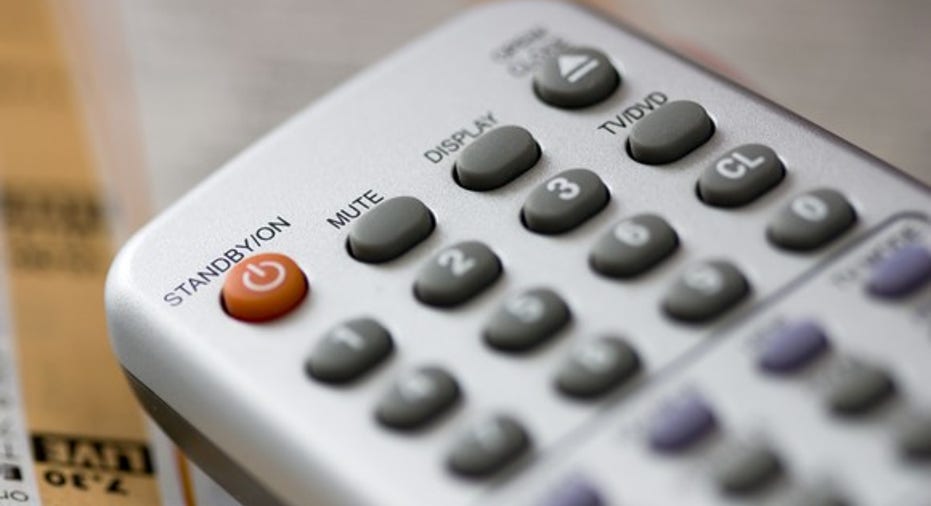More Charter Customers Paying Controversial Broadcast Fee

Cable companies including Charter (NASDAQ: CHTR) and Comcast (NASDAQ: CMCSA) use fees as a way to charge customers more than the advertised price. These are not government-mandated taxes. Instead, they are fees people must pay in order to get the service they thought they were getting for the advertised price.
Imagine, for example, if a fast-food chain ran ads for a cheeseburger, fries, and a soda selling for $3.99 (plus any applicable taxes) but when you went to pay for the deal, they tacked on a $1 packaging fee, $0.50 in order-taking fees, and a $0.75 meat-placement fee. People would be outraged, they wouldn't pay it, and they would take their business to a restaurant that charges the price it advertises.
Cable, partly because people are simply used to their bills being higher than the advertised price, and in part because many people have limited choice, has long gotten away with exactly that type of pricing.
These fees take a lot of forms, but the most egregious one may be the "Broadcast TV Fee" that Charter and Comcast tack onto many customers' bills. This fee, which varies from around $3 to about $6 a month, passes on the cost of what the cable companies pay local channels in order to rebroadcast their signals.
People don't have the option of declining the fee, or even dropping the local channels, and now Charter, which recently bought Time Warner Cable and Bright House Media, has started to add the controversial fee to the bills of some of its new subscribers.
Some cable companies use fees as a way to inflate bills. Image source: Getty Images.
What is happening?
Charter customers in some Massachusetts territories it bought from Time Warner Cable have received notices that they will be paying a Broadcast TV fee, MassLive.com reported. The cable company notified customers they would be paying a $4.47 "local broadcast TV surcharge" beginning in February. Comcast has been charging a similar fee to its Massachusetts customers since 2014, according to the local news website.
Why is Charter doing this?
Adding a fee lets the company collect more money without raising advertised prices. It also might confuse some customers who think the government imposes the fee or that it's somehow out of the company's control.
Charter has been sued over this practice, according to Consumerist. The lawsuit, filed in November 2016, comes from a former Time Warner Cable customer who accuses Charter of "engaging in a massive illegal scheme of falsely advertising and promising its cable television service plans for much lower prices than it actually charges." The lawsuit [opens in PDF] does not seek any monetary damages, merely an end to the practice.
Charter made a statement to Consumerist trying to justify the two fees named in the lawsuit -- the Broadcast TV Fee and the Regional Sports Fee -- mostly by listing the fees some rivals use that it does not.
"Our customer friendly approach includes simplified pricing and packaging with no data caps, no modem fee, no early termination fee and no separate USF [Universal Service Fund] fee," Charter said. "We provide simple to understand bills and want our customers to understand what they are paying for, including the skyrocketing cost of broadcast channels."
Comcast also faces similar lawsuits over this practice. There have also been congressional hearings on the topic, but no actions came from them.
What happens next?
Unless the courts step in, probably nothing will happen. It's unlikely that a Republican-controlled Congress or a right-leaning Federal Communications Commission (FCC) will force cable companies to be up-front with customers about their bill.
There is little incentive for Comcast or Charter to change this behavior. Not all customers pay these extra fees. In some markets they have not been implemented (at least not yet) and there are some promotional deals that do not include them. But many of Comcast's over 22 million cable subscribers and a large amount of Charter's 17 million pay them in amounts that can reach $10 a month.
The only way either company is likely to kill this cash cow would be if customers got angry. That has not happened to any widespread degree, so unless one of these legal challenges succeeds, it seems likely that fees will remain a part of most cable bills. That's great for Comcast and Charter, at least in the short term, but bad for the cable-buying public.
10 stocks we like better than Charter CommunicationsWhen investing geniuses David and Tom Gardner have a stock tip, it can pay to listen. After all, the newsletter they have run for over a decade, Motley Fool Stock Advisor, has tripled the market.*
David and Tom just revealed what they believe are the 10 best stocks for investors to buy right now... and Charter Communications wasn't one of them! That's right -- they think these 10 stocks are even better buys.
Click here to learn about these picks!
*Stock Advisor returns as of February 6, 2017
Daniel Kline has no position in any stocks mentioned. The Motley Fool has no position in any of the stocks mentioned. The Motley Fool has a disclosure policy.



















